
Dolly Rebecca Parton is an American singer, songwriter, actress, and philanthropist, known primarily for her decades-long career in country music. After achieving success as a songwriter for others, Parton made her album debut in 1967 with Hello, I'm Dolly, which led to success during the remainder of the 1960s, before her sales and chart peak arrived during the 1970s and continued into the 1980s. Some of Parton's albums in the 1990s did not sell as well, but she achieved commercial success again in the new millennium and has released albums on various independent labels since 2000, including her own label, Dolly Records.

Champagne socialist is a political term commonly used in the United Kingdom. It is a popular epithet that implies a degree of hypocrisy, and it is closely related to the concept of the liberal elite. The phrase is used to describe self-identified anarchists, communists, and socialists whose luxurious lifestyles, metonymically including consumption of champagne, are ostensibly in conflict with their political beliefs.
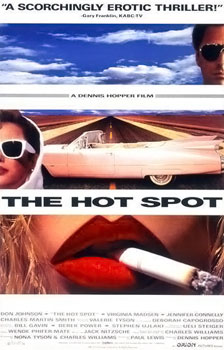
The Hot Spot is a 1990 American neo-noir romantic thriller film directed by Dennis Hopper, based on the 1953 novel Hell Hath No Fury by Charles Williams, who also co-wrote the screenplay. It stars Don Johnson, Virginia Madsen, and Jennifer Connelly, and features a score by Jack Nitzsche played by John Lee Hooker, Miles Davis, Taj Mahal, Roy Rogers, Tim Drummond, and drummer Earl Palmer.

Catherine ElizabethMoran is an English journalist, broadcaster, and author at The Times, where she writes two columns a week: one for the Saturday Magazine, and the satirical Friday column "Celebrity Watch".

Salome's Last Dance is a 1988 British film written and directed by Ken Russell. Although most of the action is a verbatim performance of Oscar Wilde's 1891 play Salome, which is itself based on a story from the New Testament, there is also a framing narrative that was written by Russell.

Brian Grant is a British music video and television director and producer. In 1982 he co-founded MGMM Productions with Scott Millaney, Russell Mulcahy, and David Mallet. MGMM became the most successful UK production company of the 80's. He started his career as a cameraman and went on to become a noted music video director, he also shot many movies and television series. He is famous for directing episodes of British television series including As If, Hex, Doctor Who, Party Animals, Sinchronicity, Britannia High, Highlander: The Series, Queen of Swords, Clocking Off, New Tricks, Sinbad, The Worst Witch, Our Girl, Video Killed the Radio Star, Lennon's Last Weekend, No Room For Ravers. He has been BAFTA and Emmy nominated. He has also directed many commercials and notable music videos through the 1980s for Olivia Newton-John, Donna Summer, Peter Gabriel, Queen, The Human League, Rod Stewart, Tina Turner, Aretha Franklin, Dolly Parton, Kim Wilde, Whitney Houston, Spandau Ballet and Duran Duran.
Charlotte Cornwell was an English actress, singer, and a teacher of acting on the faculty at the University of Southern California (2003-2012).
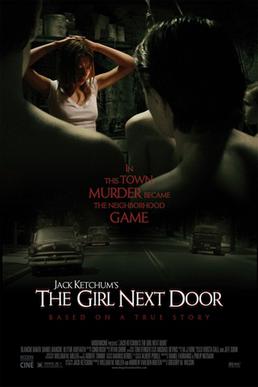
Jack Ketchum's The GIRL Next Door is a 2007 American psychological horror-thriller film directed by Gregory M. Wilson from a screenplay by Daniel Farrands and Philip Nutman. It is based on Jack Ketchum's 1989 novel of the same name, which was inspired by the real-life murder of Sylvia Likens, to whom the movie is dedicated.
Mary Rose Helen "Coky" Giedroyc is an English director known for her work on Women Talking Dirty, The Virgin Queen, The Nativity, and Penny Dreadful.

Robert Timothy Dowling is an American journalist and author who writes a weekly column in The Guardian about his life with his family in London.
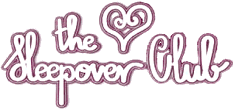
The Sleepover Club is an Australian television series that was produced by Andy Rowley for Wark Clements and Burberry Production in association with Rialto Films, with the assistance of the Pacific Film and Television Commission for Netflix, ITV, Yey!, Nickelodeon and the Nine Network. It is distributed internationally by Southern Star Sales. It was adapted from The Sleepover Club novel series. It ran from 12 November 2003 to 21 March 2008.
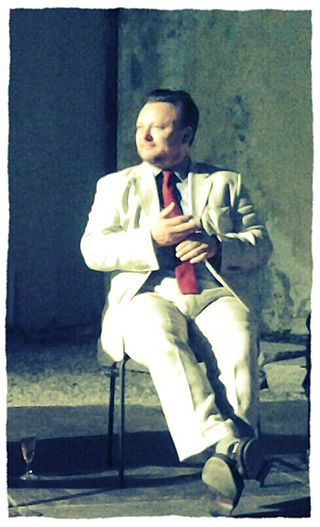
John Niven is a Scottish author and screenwriter. His books include Kill Your Friends, The Amateurs, and The Second Coming.
The Vagenda was a feminist online magazine launched in January 2012. It used the tagline "Like King Lear, but for girls," taken from Grazia magazine's summary of the film The Iron Lady, starring Meryl Streep. The Vagenda was run by British journalists Holly Baxter and Rhiannon Lucy Cosslett; it was founded by ten London-based women journalists in their twenties and was then written by a large group of anonymous contributors from all over the world, both women and men. The editors stated: "the women's press is a large hadron collider of bullshit, and something needed to be done". Cosslett describes The Vagenda as "a media watchdog with a feminist angle". In its last issue, July 2015, it announced a 'summer hiatus' in publication.
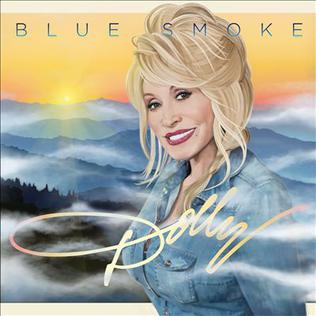
Blue Smoke is the forty-fourth solo studio album by American country entertainer Dolly Parton. The album was released in Australia and New Zealand on January 31, 2014, in North America on May 13, 2014, in Ireland on June 6, 2014, and in Europe on June 9, 2014.
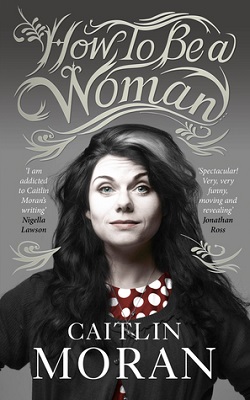
How to Be a Woman is a 2011 non-fiction memoir by British writer Caitlin Moran. The book documents Moran's early life including her views on feminism. As of July 2014, it had sold over a million copies.

Grace Petrie is an English folk singer-songwriter and guitarist from Leicester, England. She was hailed in The Guardian as "a powerful new songwriting voice" in 2011.

Elizabeth Greer "Beanie" Feldstein is an American actress. She first gained recognition for her starring roles in the comedy film Neighbors 2: Sorority Rising (2016), the comedy-drama film Lady Bird (2017), and the coming-of-age comedy film Booksmart (2019), the latter of which earned her a nomination for the Golden Globe Award for Best Actress in a Motion Picture–Comedy or Musical.
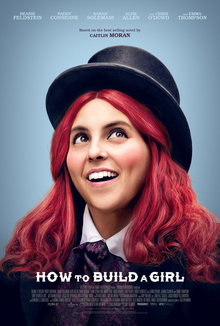
How to Build a Girl is a 2019 coming-of-age comedy film directed by Coky Giedroyc, from a screenplay by Caitlin Moran, based on her 2014 novel of the same name. The film tells the story of Johanna Morrigan, an aspiring music journalist in 1990s Wolverhampton. It stars Beanie Feldstein, Paddy Considine, Sarah Solemani, Alfie Allen, Frank Dillane, Laurie Kynaston, Arinzé Kene, Tadhg Murphy, Ziggy Heath, Bobby Schofield, Chris O'Dowd, Joanna Scanlan and Emma Thompson.
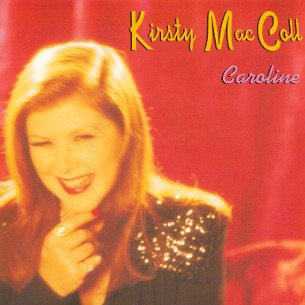
"Caroline" is a song by British singer and songwriter Kirsty MacColl, released in February 1995 as a single from her compilation album Galore. The song was written by MacColl, and produced by Victor Van Vugt and MacColl. "Caroline" reached number 58 in the UK Singles Chart and remained in the top 100 for two weeks.

Anna Smith is an English film reporter, former chair of the London Film Critics' Circle, and host of the Girls on Film podcast. She has contributed to the BBC, Sky News, Time Out, the Guardian and The Film Review.

















